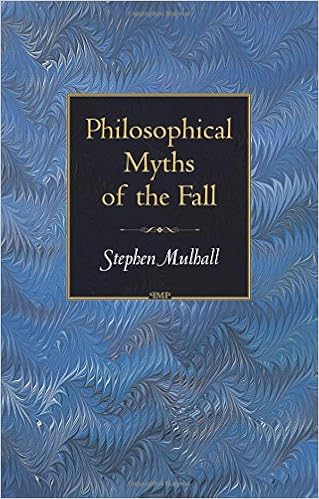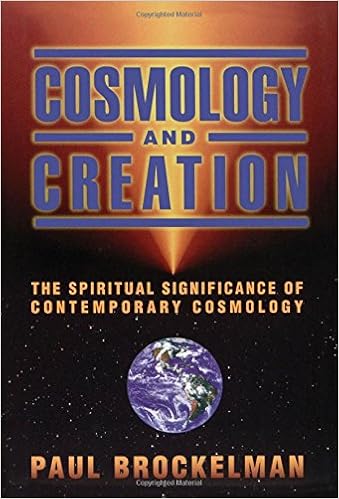
By Stephen Mulhall
Did post-Enlightenment philosophers reject the assumption of unique sin and for this reason the view that existence is a quest for redemption from it? In Philosophical Myths of the Fall, Stephen Mulhall identifies and evaluates a shocking ethical-religious measurement within the paintings of 3 hugely influential philosophers--Nietzsche, Heidegger, and Wittgenstein. He asks: Is the Christian notion of humanity as structurally wrong anything that those 3 thinkers target just to criticize? Or do they, fairly, prove by way of reproducing secular variations of an analogous mythology?
Mulhall argues that every, in numerous methods, develops a perception of people as wanting redemption: of their paintings, we seem to be no longer rather a lot able to or susceptible to mistakes and fable, yet as an alternative structurally perverse, dwelling in untruth. during this appreciate, their paintings is extra heavily aligned to the Christian standpoint than to the mainstream of the Enlightenment. although, all 3 thinkers explicitly reject any non secular figuring out of human perversity; certainly, they regard the very knowing of people as initially sinful as principal to that from which we needs to be redeemed. And but every one additionally reproduces vital parts of that knowing in his personal considering; each one recounts his personal fantasy of our Fall, and holds out his personal picture of redemption. The e-book concludes by way of asking no matter if this indebtedness to faith brings those philosophers' pondering in the direction of, or as an alternative forces it extra clear of, the reality of the human condition.
Read or Download Philosophical Myths of the Fall (Princeton Monographs in Philosophy) PDF
Similar Religious books
Rising from the thought-provoking discussions and correspondence Simone Weil had with the Reverend Father Perrin, this vintage selection of essays includes the well known thinker and social activist's such a lot profound meditations at the dating of human existence to the area of the transcendent. an everlasting masterwork and "one of the main missed assets of our century" (Adrienne Rich), anticipating God will proceed to steer religious and political proposal for hundreds of years to return.
An Introduction to the Philosophy of Religion (OPUS)
This new, thoroughly revised and up-to-date version locations specific emphasis on concerns that have lately turn into philosophically arguable. Brian Davies presents a serious exam of the basic questions of faith and the ways that those questions were taken care of by way of such thinkers as Anselm, Aquinas, Descartes, Leibnitz, Hume, Kant, Karl Barth, and Wittgenstein.
Cosmology and Creation: The Spiritual Significance of Contemporary Cosmology
The massive Bang is a fantasy, says Paul Brockelman during this interesting examine the non secular part of recent cosmology. however it is a fable within the most sensible sense--a totally learned production tale, one who, for all its medical origins, has the ability to rework us spiritually. In Cosmology and production, thinker and spiritual pupil Brockelman seeks to bridge the distance among the clinical and the non secular, to collect (as he places it) the top and the guts.
Eternal God: A Study of God without Time
Paul Helm provides a brand new, improved version of his a lot praised 1988 publication everlasting God , which defends the view that God exists in undying eternity. this can be the classical Christian view of God, however it is said through many theologians and philosophers of faith to be incoherent. Paul Helm rebuts the cost of incoherence, arguing that divine timelessness is grounded within the proposal of God as writer, and that this on my own makes attainable a formal account of divine omniscience.
Additional info for Philosophical Myths of the Fall (Princeton Monographs in Philosophy)



